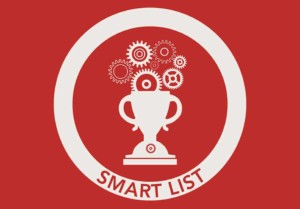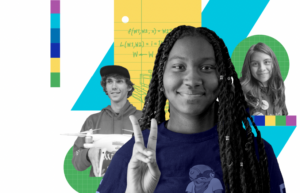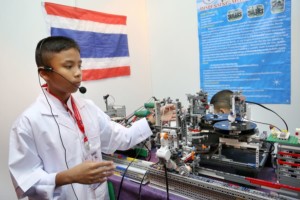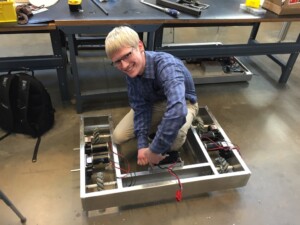Project Foundry
By Chad Sansing
Chad Sansing teaches at a Virginia charter school and blogs about reforming schools and classroom practice. I’m grateful and excited to guest-post on edReformer. Chad says that he wants to work on “what authentic learning and #edreform mean in a world increasingly discovered, mediated, presented, preserved, and affected by technology.”
Here is an interview with Shane Krukowski of Project Foundry, about project-based learning.
[Chad:] What is Project Foundry? How did it start?
[Shane:] Project Foundry is a web-based tool for students and teachers that helps manage individualized learning and showcase student work through portfolios. We believe people intuitively learn best through contextual hands on learning via projects and expeditions.
Our focus and passion grew out of our practical experience working at the non-profit Homeboyz Interactive of Milwaukee. In 1996, Homeboyz Interactive began as a bold, new initiative founded by a Jesuit to reduce gang violence and train young people for IT careers in a poverty-stricken neighborhood on the south side of Milwaukee, WI. In early 2005, the National Social Enterprise Alliance recognized Homeboyz for exemplary achievements in helping over 200 young people become productive members of society, while concurrently funding large portions of the program through the Homeboyz entrepreneurial apprenticeship program.
The success of Homeboyz Interactive was due to its successful individualized project-based approach and its web-based management tool it internally developed, entitled Project Foundry®. As changes in the economic outlook became apparent, a couple of us practitioners saw the need for such a tool in several of the more inquiry-based schools around the area. Since then, the platform has been validated by practitioners in 100 schools across 20 states, endorsed by a national educational development organization and proven in the “coolest school in America.”
How does Project Foundry support project-based learning?
Project Foundry supports project-based learning (PBL) in a bunch of ways. Here are a few:
- Manages the workflow – One of the biggest challenges for teachers new to PBL is staying on top of all the activity and work. Project Foundry organizes the influx and allows one to respond quickly in an authentic and timely way.
- Facilitates the entire PBL continuum – Too often people new to PBL think you just throw learners in the deep end right off the bat. Good PBL does not throw the baby out with the bathwater, even though it does require a paradigm shift. Project Foundry helps [start] teacher-driven seminars [and] projects, which eventually lead up to more student-directed PBL.
- Demonstrates authentic learning – Great things happen in good PBL environments [which is] surprising to some without the need of over-prescriptive curriculum and excessive classroom management. Project Foundry maps and articulates [that] just because [they’re] not sitting in rows, [that] does not mean students are not learning or doing rigorous work.
What underlying principles and beliefs about teaching and learning are embedded in Project Foundry?
- People learn differently, and a heck of a lot of people learn best by doing.
- Outside of traditional academia, content areas do not stay neatly placed into their own containers. On the canvas of life, content is a messy smattering of vivid colors. We organize and catalog these colors in order to better deal with information once we understand it, but the organization does not mean people contextualize and come to the understanding in that same manner.
- Content grows exponentially. We’ll never get there if memorizing and regurgitating facts is what people define as good learning. Considering what we know about the world already today, we can’t discount the possibility that things could look significantly different — even in as little as four years.
- Students learn best when they have voice in what they’re learning and how they are learning it. Violent campuses, chronic disruptive behavior and de-moralized teachers seem to have a way of disappearing when kids actually want to be at school.
- Performance-based assessment needs to have a major role in a school if lifelong learning skills are truly valued by a learning environment.
Lastly, the future will be fueled by those able to answer adaptively the how and why questions of the marketplace. The paradigm required to prepare and cultivate human capital adequately to succeed in this type of changing world requires more effective approaches to teaching and learning that leverage real experiences and value what people can apply rather than obediently regurgitate.
The current ed reform movement has the promise to codify and amplify practical techniques happening in the trenches, while at the same time [it can] shed light on the inconsistencies of traditional academic rhetoric held sacred for reasons other than student success.
What should a classroom teacher takeaway from your approach to education?
Teachers need to become learning coaches that thread together learning experiences and connect learners to appropriate resources based on the learner with an occasional content seminar as needed.
How does a school know its ready to work with Project Foundry? What is the life cycle of Project Foundry adoption and implementation? How do you handle site-based professional development in project-based learning?
If a school has the leadership, temperament and multi-year commitment to do something different than the status quo that yields much more meaningful results, then Project Foundry would be a great fit.
The life cycle of Project Foundry depends on the buy-in of the staff [regarding] PBL. That being said, typically, year one builds the foundation of the new school culture and definition of how things are different. This involves small-scope projects, reflective journaling, and, possibly [during the] second half of the year, student portfolio creation. Year 2 involves a number housecleaning tasks, including leveraging self-assessment rubrics and better leveraging learning plans. Year 3 folks really start to see how things connect and there’s where we have our best advocates.
In terms of professional development (PD), Project Foundry is just a tool that facilitates good practice. Thus, Learning Project Foundry alone will not guarantee a great PBL environment. Inherently, good PD from groups like EdVisions, BIE, Swanson and Cosgrave, etc., will be a tremendous asset to the process. Recommended initial Project Foundry training is a day and a half onsite training with follow-up remote webinar support sessions 45 days into the year and then again 90 days into the year.
What do you think needs to happen at the national policy level to promote project-based learning in public schools?
Get over this Interactive Whiteboard craze! Nice tool, but way too much time and money [gets] placed on getting these, when, (from all my travels) they are seriously underutilized and somewhat of a red herring for ed reform.
Standardization of skills leads to standardized jobs. Get over this obsession with over prescriptive curriculum. It may make adults feel like they’re working, but it does not equate to better teaching and learning.
Value the highly educated professionals we hire as teachers instead of making them rats in a cage. This can happen if autonomous charter schools continue to grow. In my opinion, charter schools empower teachers and crack away at the traditional thought that bigger buildings are better for the learner.
Encourage more community organized sports leagues over high school organized sports teams, or figure out how non-enrolled students can participate in existing high school sports programs. This frees parents to choose the possibly better smaller schools without compromising the learner’s interest in organized sports. In my opinion, this is the elephant in the room no one wants to talk about.





James Steckart
We could do the incredible work we do without ProjectFoundry. The tool allows us to focus more time with students while at the same time gives us greater documentation power for students, parents and the state. I can't rave more about the product. Anyone who seriously calls themselves a project based learning school would be hard pressed to find a product that leverages the power of individual learning plans. I consider it to be our number one productivity tool at our school